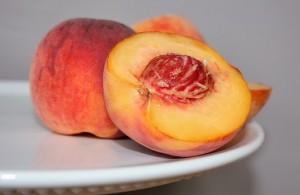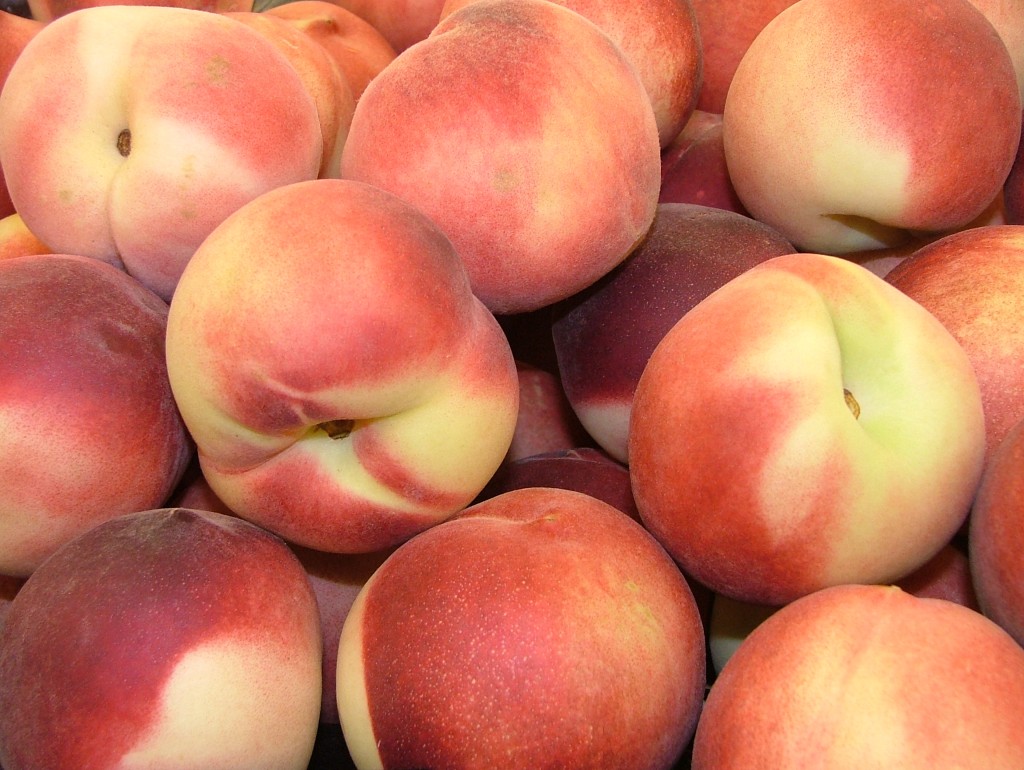Feeling peachy

 Have you ever noticed how much better something tastes when you haven’t had it in a long time? Somehow it’s easier to appreciate the natural flavors and textures of a food after you’ve been deprived for awhile. It feels like a “treat!”
Have you ever noticed how much better something tastes when you haven’t had it in a long time? Somehow it’s easier to appreciate the natural flavors and textures of a food after you’ve been deprived for awhile. It feels like a “treat!”
This week, I ate my first peaches in three years. They were sweet, juicy and delicious! I savored every bite and wondered why they had not been a regular part of my nutritional program during fat loss or part of my life/maintenance nutritional plan now. To be honest, I can’t tell you why.
I researched the nutritional value of peaches and learned they’re lower in calories than many other fruits (100 g provide 39 calories), have fewer carbs/less natural sugar, and contain no saturated fats. They’re filled with vitamin C and a good source of potassium and fiber, and they contain beta-carotene — which the body converts to vitamin A. And they taste awesome!
Now that I’ve gotten reacquainted with peaches, they’re in my nutritional program. Known as a mid to late summer fruit, my grocery store aisle was filled with fresh peaches of many varieties this past week — post Labor Day Weekend. Yum!
Here are some of the “peachy” facts (according to several sources):
- Peaches originated in China. Yep, they were taken along the Silk Route to Persia and were later spread to North and West Europe by the Romans. The peach is easily raised from seed and is now grown in temperate climates across the globe.
- The peach tree is a member of the rose family and is related to both the apricot and the almond.
Buying Peaches: Peaches get softer and juicier after picking but only develop flavor and sweetness on the tree. Choose fruit that yield slightly to pressure: firmish fruit are fine but hard fruit should be avoided.
- The amount and depth of pink coverage on the skin varies and does not signify ripeness, but any sign of green reveals fruit that has been picked prematurely.
Nutritional Facts & Health Benefits:
- Fresh peaches are a moderate source of antioxidant, vitamin C. Vitamin-C has anti-oxidant effects and is required for connective tissue synthesis in the body. Consumption of foods rich in vitamin C helps the body develop resistance against infectious agents, and help scavenges harmful free radicals.
- Fresh fruits are an also moderate source of vitamin A and ß-carotene. ß-carotene is a pro-vitamin, which converts into vitamin A in the body. Vitamin A is essential for vision. It is also required for maintaining healthy mucus membranes and skin. Consumption of natural fruits rich in vitamin A is known to offer protection from lung and oral cavity cancers.
- Peaches are rich in many vital minerals such as potassium, fluoride and iron. Iron is required for red blood cell formation. Fluoride is a component of bones and teeth and is essential for prevention of dental caries. Potassium is an important component of cell and body fluids that help regulate heart rate and blood pressure.
- Peaches contain health promoting antioxidants that help act as protective scavengers against oxygen-derived free radicals and reactive oxygen species (ROS) that play a role in aging and various disease processes.
- Here is a great link on the health benefits of peaches that includes things like contributing to eye health and skin care.
Okay, so the next time you reach for a fresh fruit, you might consider a peach. Just sayin.







Yum! Love the info Lori, we’ve been eating peaches lately as they come in our CSA box.. so delicious!